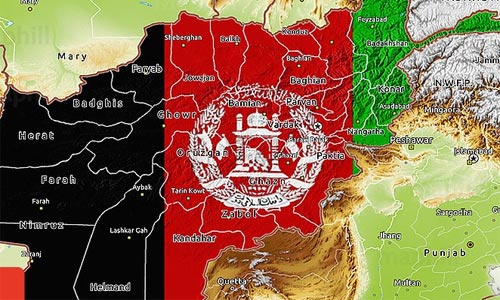The “Afghanistan as a Regional Hub” narrative has gained traction in recent years. Yet a very important question remains: How this would be realized? While statistics point to a country whose fortunes have improved, many Afghan citizens remain at the margins of socioeconomic development. There is a heightened focus among provinces and regions on translating promising statistics into better livelihoods for citizens. Citizens’ discontent in provides a fresh reminder of the danger in touting impressive economic growth statistics while the majority of a country’s population remains excluded from democratic governance processes and development. It is also widely believed that development failures and governance deficits lie “at the heart of Afghanistan’s violent conflicts.” Afghanistan will only achieve its full potential and live up to the Afghanistan as a regional hub narrative if it can strengthen its systems of governance; promote inclusive, equitable, and participatory development; and embed a culture of democracy and peace.
However, many challenges persist, and pockets of regression are evident. A growing youth bulge and the widespread marginalization of young people, enduring underdevelopment, and persistent inequalities are among the social and economic challenges that are negatively impacting efforts to improve governance.
Terrorist groups and radicalized militias are controlling vast expanses of ungoverned territories, becoming astute service providers in competition with the state. In certain contexts, these non-state actors, heavily armed, are taking advantage of technology and globalization in their attempts to redefine the manner in which power is acquired, exercised, and maintained. All of them abuse religion by claiming it legitimizes new forms of brutal authoritarianism, as illustrated in Qandahar, Nangarhar, Ghazni, Sar e Pul, Badakhshan and other provinces. As a result, it has created major risks for governance and leadership at national and sub-ntional levels. In addition, many of these groups marshal local discontent with “bad politics” and take advantage of an absence of state authority due to weak institutions at the local level.
Indeed, marginalization and exclusion form part of a long list of challenges to governance, peace, and stability in Afghanistan, which also includes mismanagement of natural resources; failure to adhere to the rule of law; violations of human rights; inequality and extreme poverty; youth unemployment; inadequate reconstruction, development, and reconciliation; and shortcomings in disarmament and reintegration of ex-combatants back into their communities.
Recent reverses in peace and security across Afghanistan illustrate the persistent gaps that exist between the aspirational norms of democratic governance and their implementation. Yet, in the face of these setbacks, policy responses tend to focus on the violent symptoms of insecurity rather than addressing one of the primary root causes of these conflicts: poor governance. As a result, Afghanistan’s mixed peace and security record can be seen in both the progress in economic growth and peace consolidation, and the enduring security risks that find their roots in multilayered democratic governance deficits.
To overcome this ambivalent record, Afghanistan needs a unified strategy to address the country’s governance challenges and advance long-term peace and stability. Effective, inclusive, and accountable governance; visionary leadership; and solid democratic institutions are critical to ensuring Afghanistan reaches its potential in ever challenging environments. Thus, restoring and strengthening governance in fragile and conflict affected contexts calls for a new social contract built on accountability and inclusiveness—of institutions, politics, economic growth, natural resource management, and the delivery of public services. This new social contract, which is an essential prerequisite to Afghanistan’s transformation, has the potential to facilitate the kind of socioeconomic development and responsive, inclusive politics that leads to an enabling environment for sustainable peace and stability. Such responsibility should include building capable, effective, and legitimate states, and ensuring the participation of all Afghan citizens in the endeavor to build this social contract.
A lack of implementation of norms and standards prevents the realization of the normative and institutional frameworks for promoting democracy and the rule of law in Afghanistan. In light of limited coordination, there are gaps between institutions and citizens, as well as political, resource, and capacity constraints. To effectively tackle these challenges the Afghan government shall take specific policy measures focusing on three main priorities: enhancing democracy, governance, and human rights; bridging the divide between governance standards and performance; and promoting effective governance from the ground up.
Home » Opinion » Effective Governance in Challenging Environments
Effective Governance in Challenging Environments
| Moh. Sakhi Rezaie

